Non-oil sector drives Nigeria’s 3.98% GDP growth in Q3 2025
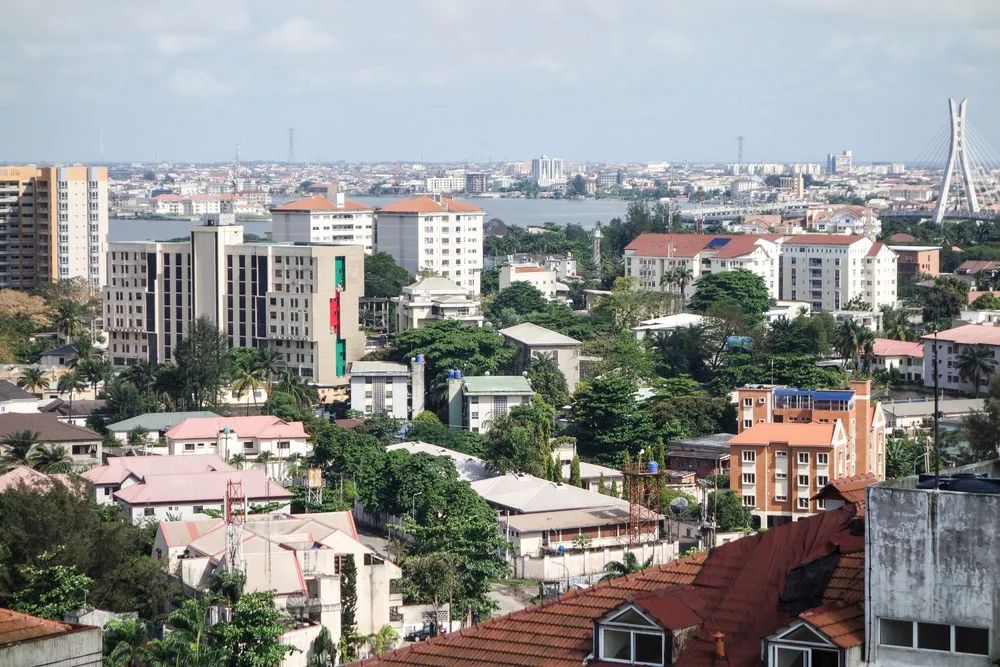
By: Chidozie Nwali Nigeria’s economy recorded a real Gross Domestic Product (GDP) growth rate of 3.98% year-on-year in the third quarter of 2025, according to the latest report released by the National Bureau of Statistics (NBS) on Monday; marking a slight improvement from the 3.86% growth rate recorded in the corresponding period of 2024. However, the Q3 2025 growth rate is a moderation when compared to the 4.23% posted in the second quarter of the year. In real terms, the aggregate GDP for the 3 months period (July, August, and September) stood at a massive N57.03 trillion, while in nominal terms it’s N113.59 trillion representing a year-on-year nominal growth of 18.12%. The non-oil sector continued to drive the nation’s economic output, growing by 3.91% in real terms during the quarter; an increase of 0.11 percentage points from the 3.79% recorded in Q3 2024, and higher than the 3.64% recorded in the immediate past quarter, Q2 2025. NBS noted that the non-oil sector contributed 96.56% to the total real GDP. Growth within this crucial sector was primarily powered by: Agriculture, particularly Crop Production; Information and Communication, led by Telecommunications; Real Estate; Financial and Insurance (Financial Institutions). Trade, Construction, and Manufacturing also contributed positively to the GDP expansion. Overall, the Services sector accounted for the largest share of the GDP at 53.02% in Q3 2025, despite its year-on-year growth rate slowing to 4.15% from 4.97% in Q3 2024. The Agriculture sector grew by 3.79% in real terms, a strong improvement from the 2.55% recorded in Q3 2024. Agriculture’s contribution to real GDP stood at 31.21%, with Crop Production alone driving 65.99% of the sector’s nominal value. The Industry sector also saw accelerated growth, expanding by 3.77%, significantly higher than the 2.78% recorded in the third quarter of 2024. The Oil sector’s real growth stood at 5.84% year-on-year, a slight increase of 0.18 percentage points from the 5.66% recorded in Q3 2024. However, the sector experienced a sharp deceleration when compared to the preceding quarter, Q2 2025, which saw growth of 20.46%. NBS highlights that average daily crude oil production for the quarter was 1.64 million barrels per day (mbpd). This production volume is higher by 0.17 mbpd when compared to Q3 2024 (1.47 mbpd) but lower than the Q2 2025 output of 1.68 mbpd. The Oil sector’s contribution to the total real GDP was 3.44%. This positive overall GDP growth recorded is largely attributed to the economic reforms initiated by the president Bola Ahmed Tinubu-led administration, specifically the liberalization of the Naira’s exchange rate and the removal of the costly fuel subsidy. While these actions initially triggered a sharp depreciation of the currency and a cost-of-living crisis, they have since boosted investor confidence, aiding economic acceleration. The Q3 growth rate of 3.98% aligns closely with the International Monetary Fund’s (IMF) upwardly revised full-year projection of 3.9% for Nigeria, suggesting the economy is responding positively to the policy adjustments. Despite the GDP growth, the economy continues to grapple with elevated inflation, particularly concerning Nigerian households. While headline inflation had started a gradual deceleration, from peak 24% in January, falling to 16.05% by October 2025, it remained far above the Central bank of Nigeria (CBN) single-digit inflation target range.
Africa investment forum closes with $15.3 billion in project interest
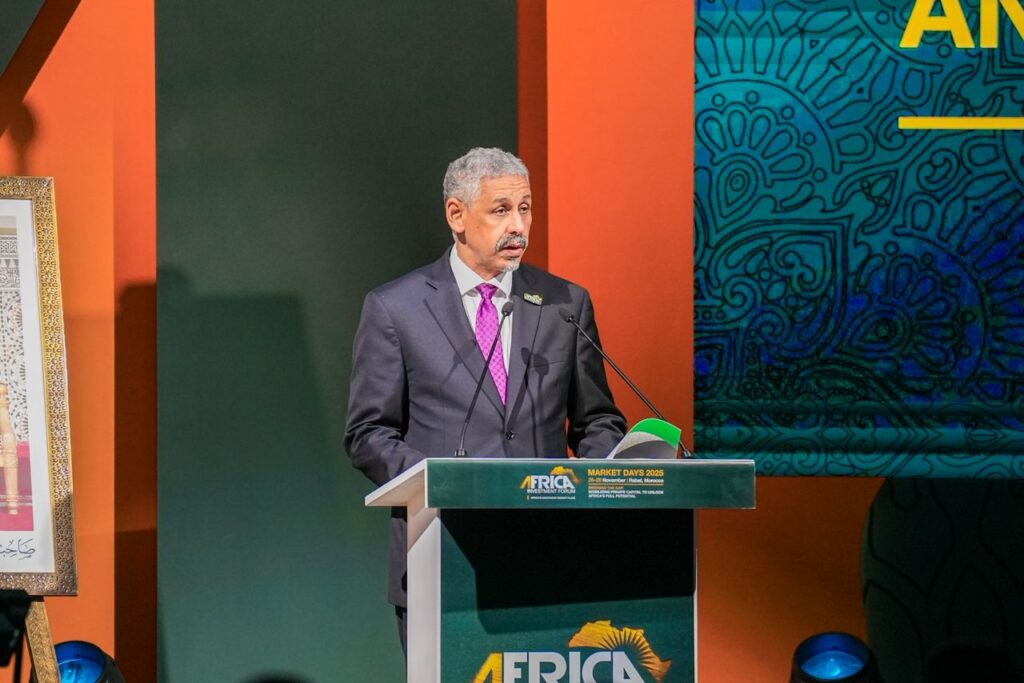
By: ThinkBusiness Africa The 2025 Africa Investment Forum (AIF) Market Days just concluded in Rabat, Morocco, securing a massive $15.3 billion in investment interest across 39 bankable projects. Africa Development Bank (AfDB) said in a statement on Sunday The successful three-day event, held under the theme “Bridging the Gap: Mobilising Private Capital to Unlock Africa’s Full Potential,” showcased a rapidly growing global appetite for African investment opportunities. Sidi Ould Tah AfDB president announced the impressive outcome at the close of the event, stating, “The conclusion of the Africa Investment Forum’s 2025 Market Days marks a new beginning, full of optimism, for the future of our continent.” This year’s Forum drew financial backing from 32 global private-sector organizations, twice the number recorded in 2024 – cementing AIF’s status as a premier marketplace for large-scale investment across Africa. Over 2,000 delegates representing private capital providers, investment banks, multilateral development finance institutions, entrepreneurs, and government officials from nearly 80 countries attended. Notably, Japan sent a delegation of almost 100 participants. President Tah attributed the strong investor response to the robust financial models and thorough social and environmental impact studies supporting the tabled projects. Approximately two-thirds of the proposed transactions targeted the critical energy and transport sectors, highlighting the continent’s infrastructure needs and potential. A major transport project that advanced significantly at the AIF was the Ethiopian Airlines Group’s (EAG) push to finance the Bishoftu International Airport (BIA), a flagship mega-project valued at approximately $12.5 billion. Located 40 kilometers southwest of Addis Ababa, the new greenfield airport is designed to ease congestion at Bole International Airport and, when fully completed, will handle up to 110 million passengers annually, positioning it as Africa’s largest aviation hub. The AfDB is already appointed as the Initial Mandated Lead Arranger (IMLA) for the project, which aims for a Phase One completion by 2030 with an initial capacity of 60 million passengers, transforming Ethiopia into a critical gateway connecting the continent to the world. The AfDB President unveiled new measures to rigorously track project progress. The AIF will introduce an annual dashboard to monitor the rate at which investment interest successfully converts into actual, on-the-ground investment. Discussions throughout the Market Days also centered on project structuring, capital mobilization, and critical issues like women’s access to finance. The opening plenary featured a high-level ministerial dialogue dedicated to accelerating private investment through a conducive enabling environment. “The conclusion of the Africa Investment Forum’s 2025 Market Days marks a new beginning, full of optimism, for the future of our continent,” Tah said. Created in 2018, the Africa Investment Forum has become a multidisciplinary platform connecting investors and project developers. With design to support projects until they achieve bankability and expedite the resources used in financing the projects.
Nigeria: Dangote refinery boosts petrol supply to 1.5 Billion litres monthly
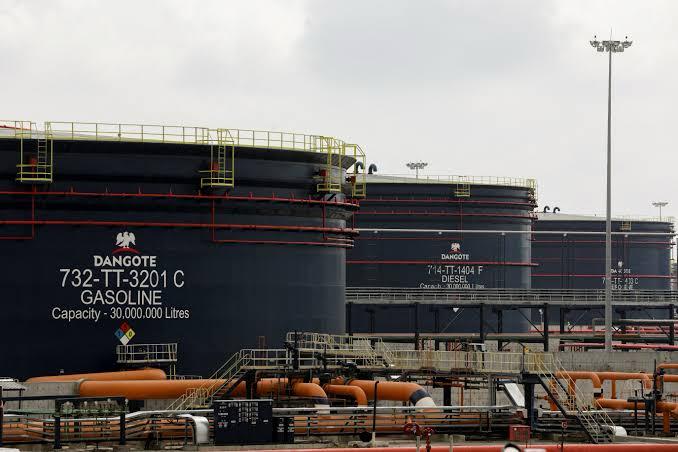
By: ThinkBusiness Africa Dangote Petroleum refinery said in a letter addressed to the Nigerian downstream regulator on Sunday that it will kickstart supply of 1.5 billion litres of Premium Motor Spirit (PMS), per month to the Nigerian market, effective December 2025. The pledge, equivalent to approximately 50 million litres per day, is intended to ensure an uninterrupted supply across the nation throughout the crucial December festive season and into the new year. This volume is widely considered sufficient to meet the nation’s entire daily consumption requirement, which typically hovers between 50 and 60 million litres. According to the letter to the Nigerian Midstream and Downstream Petroleum Regulatory Authority (NMDPRA), seen by ThinkBusiness Africa the 650,000 processing plant noted that from this December to January it will supply 1.5 billion litres per month (50 million litres/day). It further stated a supply increase of 1.7 billion litres per month (approximately 57 million litres/day). From February onwards. “We are writing to confirm our commitment to supply Nigerian domestic PMS requirements. Dangote refinery is ready and able to supply 1.5 bin litres of PMS per month (50mln litres/day) in December and January followed by 1.7 bln litres per month (57mln litres/day) from February 2026 onwards.” The letter dated November 30th 2025 read. The facility’s management formally requested the NMDPRA to deploy its officials to the refinery site starting December 1st to physically verify and publicly release the daily supply volumes. This unprecedented move is designed to dispel any doubts regarding the domestic capacity to meet national demand and boost public confidence. The commitment follows previous claims from the NMDPRA suggesting that the refinery’s average daily PMS supply had only been around 18.03 million litres between October 2024 and October 2025, falling short of its 35 million litres per day target for that period. The refinery, however, also sought regulatory support for addressing persistent logistical challenges which includes: requesting unhindered clearance of crude oil, feedstocks, and blending components. It is also seeking support for the smooth lifting of finished products by vessel, noting that current delays add unnecessary costs and inefficiencies that ultimately impact consumers. “We seek the full support of NMDPRA to allow Dangote refinery to import our crude, feedstocks and blending components unhindered as well as support the lifting of our products by vessel.” The letter read. Last month the refinery announced that it has entered into a $250 million agreement with Honeywell petroleum technology firm to double its crude oil processing capacity from 650,000 barrels per day (bpd) to an unprecedented 1.4 million bpd by 2028. When fully operational at 1.4 million bpd, the complex will have the capacity to process nearly all of Nigeria’s current crude oil production of 1.5 million bpd.
NNPC’s October profit soars 107% outpacing September’s performance
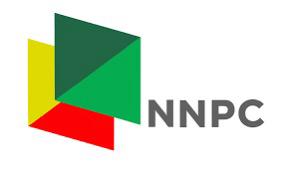
By: Chidozie Nwali The Nigerian state-owned oil company reported on Saturday a remarkable surge in its financial performance for October 2025, recording a Profit After Tax (PAT) of N447 Billion, a significant 107% increase over the N216 Billion PAT recorded in September. According to the Nigerian National Petroleum Company Limited (NNPCL) gross revenue for October was N5 trillion while that of September was N4.2 trillion, a 19% increase. However, the sharp rise in profitability was driven by exceptional performance in the gas segment and a substantial recovery in the total revenue, effectively mitigating the slight drop in crude oil production volumes. NNPCL reported a staggering 36.9% increase in gas sales volume, from 3,443 million standard cubic feet per day (mmscf/d) in September to 4,713 mmscf/d providing a significant uplift to the company’s revenue and bottom line. This increase suggests successful optimization of domestic and export gas channels following the maintenance activities that affected September’s figures. Natural Gas Production increased by 11.3% in October, supporting the higher sales volume and reinforcing NNPC’s growing reliance on gas as a stable revenue source. Although Crude Oil & Condensate Production was marginally lower in October (1.58 million barrels per day) compared to September (1.61 mbpd), the decline was minimal. Crucially, the achievement of 100% Upstream Pipeline Availability in October (up from 96% in September) helped maximize crude and condensate sales, ensuring that the modest production volume was fully evacuated and commercialized. Earlier this week the state-owned oil company announced a PAT of N5.4 trillion for the full year ended 2024, on a gross revenue of N45.1 trillion.
Nigeria’s central bank to release revised FX manual as Naira stabilizes
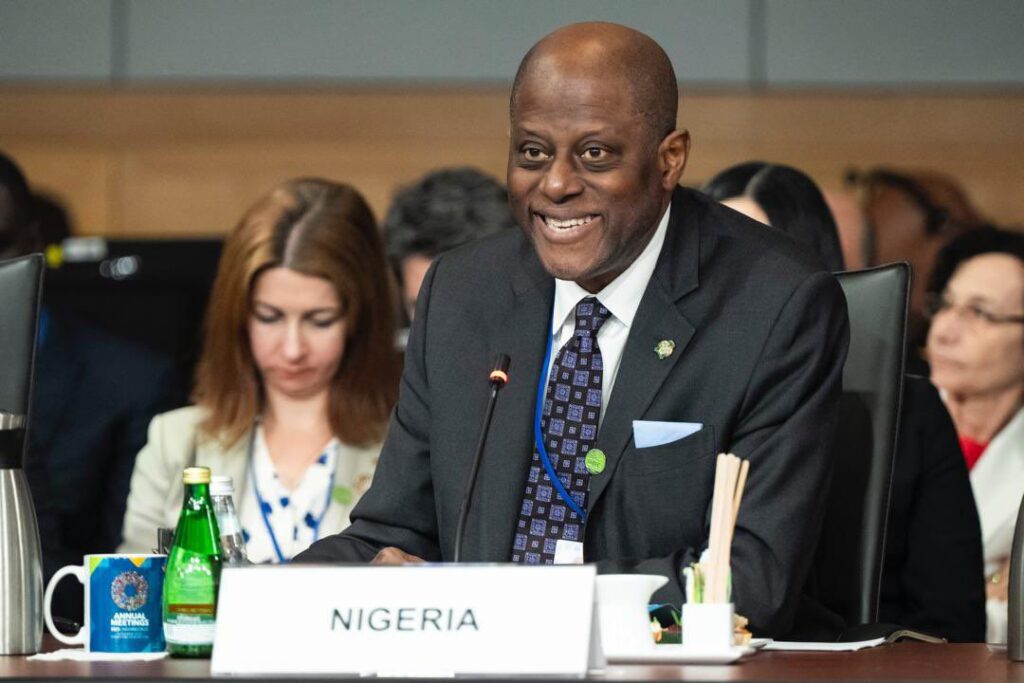
By: ThinkBusiness Africa The Apex bank said it has finalized an updated foreign exchange (FX) Manual that will soon be released as part of a comprehensive effort to deepen market participation, improve transparency and boost confidence in the local currency–Naira. Mr. Olayemi Cardoso, governor of the Central Bank of Nigeria (CBN), said on Friday that the revised manual is a key component of ongoing reforms aimed at improving efficiency and governance within the FX market. The manual is expected to set clearer rules, strengthen documentation processes, expand participation, and enhance surveillance across the electronic FX management system. “To strengthen this framework further, we will shortly be unveiling the revised foreign exchange manual to expand market participation, tighten documentation standards, enhance EFMs surveillance and ensure consistency,” He said. On Tuesday the CBN monetary policy committee retained the key interest rate at 27% after a 50 basis point reduction earlier in September, following months of disinflation and Naira stability. According to CBN data, Naira posted a stronger performance this week at the official foreign exchange window, trading below the N1,450/$1 underscoring the effect of CBN’s FX reforms to stabilizing the local currency, as it holds steady two months after a rate cut.
South Africa’s trade surplus narrows in October to $909M million
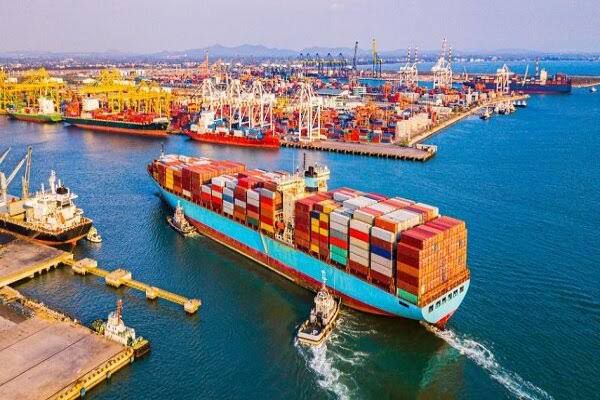
By: Chidozie Nwali South Africa’s run of trade surpluses continued in October, but the figure came in weaker than expected, according to preliminary data released by the South African Revenue Service (SARS) on Friday. The country recorded a preliminary trade surplus of R15.58 billion ($908.94 million) for the month of October 2025; a significant dip from the revised surplus of R22.3 billion ( $1.30 billion) recorded in September. The figure also fell short of the R20 billion surplus ( $1.17 billion) that analysts polled by Reuters had forecast. The narrowing of the surplus was primarily a result of a sharp increase in imports, which outpaced the growth in exports. Exports climbed to R192.2 billion ($11.21 billion) in October, up from R186.4 billion ($10.87 billion) in September, an increase of approximately 3.1%. Imports surged to R176.6 billion ( $10.30 billion), up from R164.8 billion ( $9.61 billion) in September, marking a substantial increase of about 7.2%. The jump in imports was largely attributed to higher domestic purchases of energy and manufacturing inputs, specifically: crude oil, petroleum oils, and original-equipment components (likely for the automotive sector). The trade balance figures include trade with fellow Southern African Customs Union (SACU) members: Botswana, Eswatini, Lesotho, and Namibia (BELN). Despite the month-on-month contraction, the year-to-date preliminary trade balance surplus (for the period ending October 2025) remains substantial at R142.7 billion ( $8.32 billion). However, this is still lower than the R148.1 billion ($8.63 billion) surplus recorded over the comparable period ending October 2024, highlighting the challenges the South African economy faces amid global economic uncertainties and domestic infrastructure constraints.
Africa-Arab Trade Poised for $37 Billion Boost, Nigeria Insists
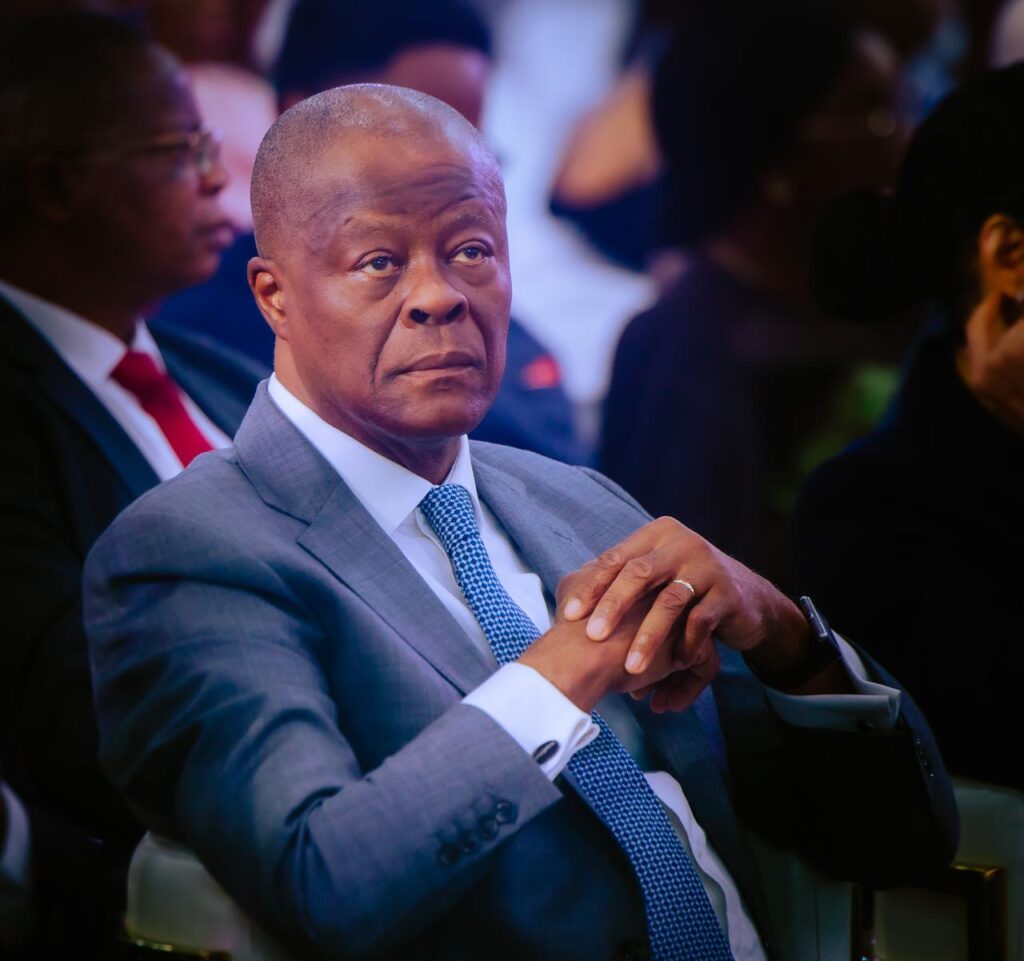
Nigeria is strongly advocating for a decisive shift towards value-added agribusiness and industrial partnerships between African and Arab nations, positioning regional cooperation as the vital engine for shared economic growth amidst a fluctuating global economy. Speaking on Friday at the Agribusiness Matchmaking Forum, held ahead of the Arab-Africa Trade Bridges (AATB) Board of Governors Meeting, Nigerian Minister of Finance and Coordinating Minister of the Economy, Wale Edun, stressed that this is a critical juncture to move from ambition to action. Minister Edun highlighted the significant economic opportunities present in deeper collaboration, citing projections that Arab–African trade could grow by more than $37 billion over the next three years. This figure underscores the vast, untapped potential that both regions stand to gain by intensifying commercial links. However, the Minister issued a clear call to action, urging partners to “prioritise value addition rather than raw commodity exports.” This focus on processing, manufacturing, and industrialisation is crucial for building resilient economies, creating sustainable jobs, and capturing greater revenue from global value chains. Raw agricultural goods like edible fruits and nuts, coffee, tea, mate, spices, and edible vegetables, are exported from Africa to Arab countries. These sectors the minister emphasized can be processed in value chains. Arab states are major exporters of chemical fertilizers and other organic and inorganic chemicals used in agriculture and industry across Africa. The United Arab Emirates (UAE) reported over $100 billion trade with Africa this year. “This is a moment to turn opportunity into action,” Minister Edun declared. “By working together, we can build stronger value chains, create jobs and support prosperity across our regions.” He emphasized. The Agribusiness Matchmaking Forum and the subsequent AATB Board of Governors Meeting served as a strategic platform to facilitate tangible deals. The meeting was instrumental in formalising Nigeria’s commitment to the regional trade body, culminating in the signing of a Membership Agreement that officially admits the country into the Arab Africa Trade Bridges (AATB) Programme. At least 10 major trade deals, each worth a minimum of $100 million, are currently being negotiated between African and Arab businesses, indicating a strong momentum towards realising the projected trade growth.
Zimbabwe forecasts modest 2026 growth amid global headwinds and domestic recovery
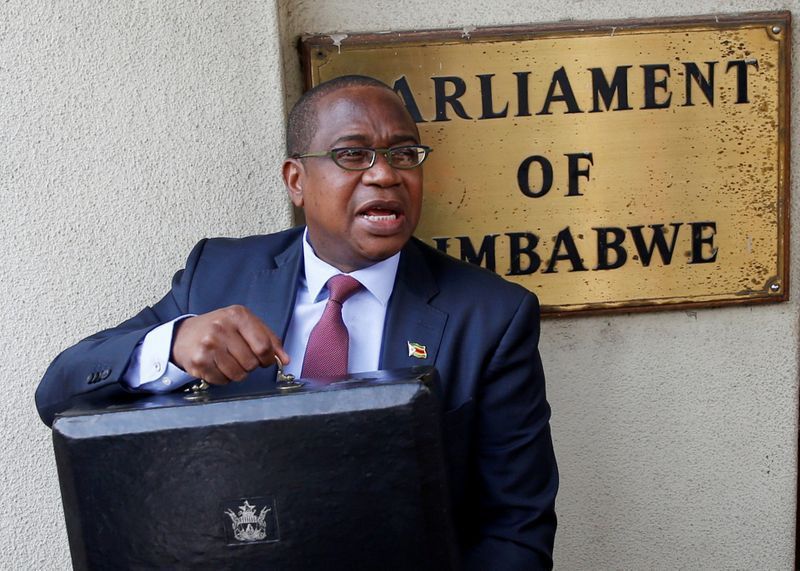
By: ThinkBusiness Africa Zimbabwe’s Finance Minister, Mthuli Ncube, projected modest economic growth for 2026 in his budget presentation on Thursday, acknowledging that the country’s recovery efforts will be tempered by persistent external headwinds. The conservative outlook follows a year marked by a severe drought and ongoing currency volatility, challenges the government is actively trying to mitigate. Minister Ncube indicated that while domestic economic activity is showing resilience, global factors will limit the pace of expansion next year. The exact growth figure for 2026 was not immediately specified, but it is expected to be lower than the revised 2025 projection, which the IMF recently noted was stronger than anticipated due to a rebound in agriculture and solid mining performance. Last month Zimbabwe’s government announced a significant upward revision of its economic growth forecast for 2025, projecting a robust 6.6% growth, a notable increase from earlier 6% projection. The external headwinds cited include slowing global demand for commodities and tighter international financial conditions, which impact Zimbabwe’s crucial export earnings from sectors like mining and tobacco. Inflation, which currently sits at 19.0% year-on-year in November, is forecast to fall closer to 10% by year-end and reach single-digit levels by early 2026 due to exchange rate stability. In an effort to boost state revenue and support the stability of the new Zimbabwe Gold (ZiG) currency, Ncube announced several key fiscal and tax policy changes in the 2026 budget: The Finance Minister stressed that the economy is still recovering from the dual pressures of a major El Niño-induced drought, which severely impacted agricultural output, and chronic currency volatility. The drought significantly contracted the agricultural sector in 2025, a critical component of the country’s GDP and food security. The 2026 outlook hinges on improved rainfall forecasts and continued government support for enhanced irrigation infrastructure. The new ZiG currency, introduced earlier this year, is intended to stabilize the exchange rate and ease inflation. The budget measures, particularly the tax concessions on ZiG transactions, are central to the government’s strategy to build confidence in and encourage the adoption of the local currency as part of its de-dollarization roadmap by 2030. The International Monetary Fund (IMF), which recently concluded a staff visit to Harare, noted that while the 2025 economic rebound was stronger than anticipated, sustaining momentum into 2026 will require a deeper commitment to fiscal discipline and structural reforms. The budget framework is seen as a crucial step toward addressing the policy issues needed for Zimbabwe to potentially secure a Staff Monitored Program with the IMF.
Egypt’s GDP hits 5.3% in first quarter 2025/2026, highest in 3 years
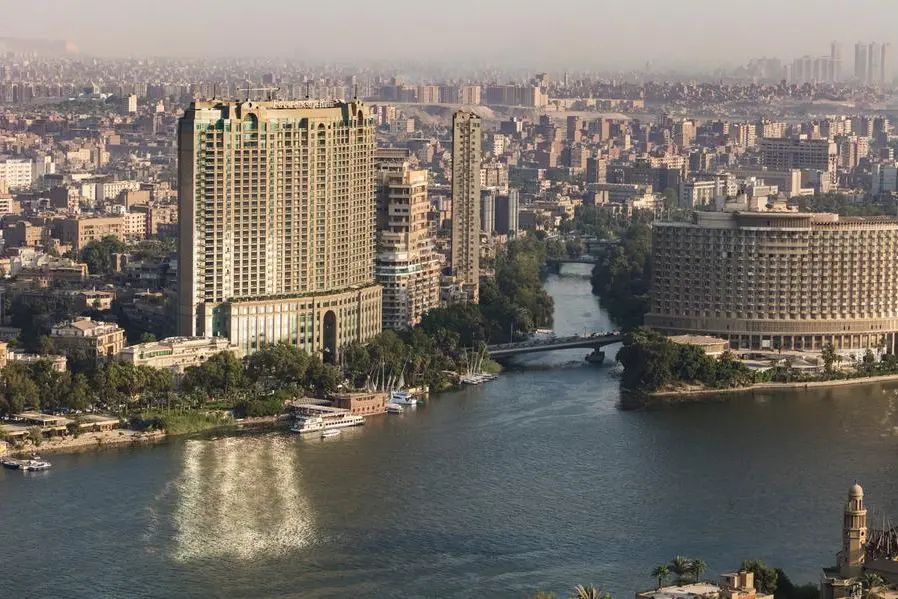
By: Chidozie Nwali The Egyptian Ministry of Planning, and Economic Development said on Thursday, that it marks the strongest quarterly performance in over three years, significantly outpacing the 3.5% growth recorded in the same quarter last year.The North African economy has demonstrated robust health, accelerating sharply to register 5.3% GDP growth in the first quarter of the 2025/2026 fiscal year. Minister of Planning Rania Al-Mashat attributed the momentum to the government’s continued economic and structural reforms, which are successfully re-orienting growth towards productive, high-value sectors and empowering the private sector. The Non-Oil Manufacturing sector expanded by a remarkable 14.5% in the quarter, nearly doubling the growth rate from the previous year. This surge was reported to be demand-driven rather than purely price-driven. This strong performance in manufacturing is supported by parallel growth in exports, with semi-finished goods exports rising 34.1% in August 2025. Another key highlight was the decisive rebound in activity for the Suez Canal, which had been severely impacted by geopolitical tensions in the Red Sea. The canal Recorded an 8.6% positive growth rate, marking its first increase since December 2024, signaling a return to stability in the vital global waterway. Tourism Maintained its upward momentum, growing by 13.8% and attracting approximately 5.1 million tourists during the quarter. ICT Advanced by 14.5%, reflecting a strategic shift from a service-centric model to a production-based, digital-export economy, with rising investments in outsourcing. The Minister of Planning and Economic Development said “private investments achieve a remarkable growth of 25.9% to capture 66% of total investments” executed; highest level recorded in recent periods, while the share of public investment declined to 34%. The International Monetary Fund had approved an extended loan package of $8 billion to support economic reforms in the country. The IMF approved the disbursement of the fourth tranche, worth about $1.2 billion in march/april. Private Investment contributed 2.45 percentage points to the overall GDP growth.
South African businesses face rising input costs, producer Inflation Rises to 2.9%
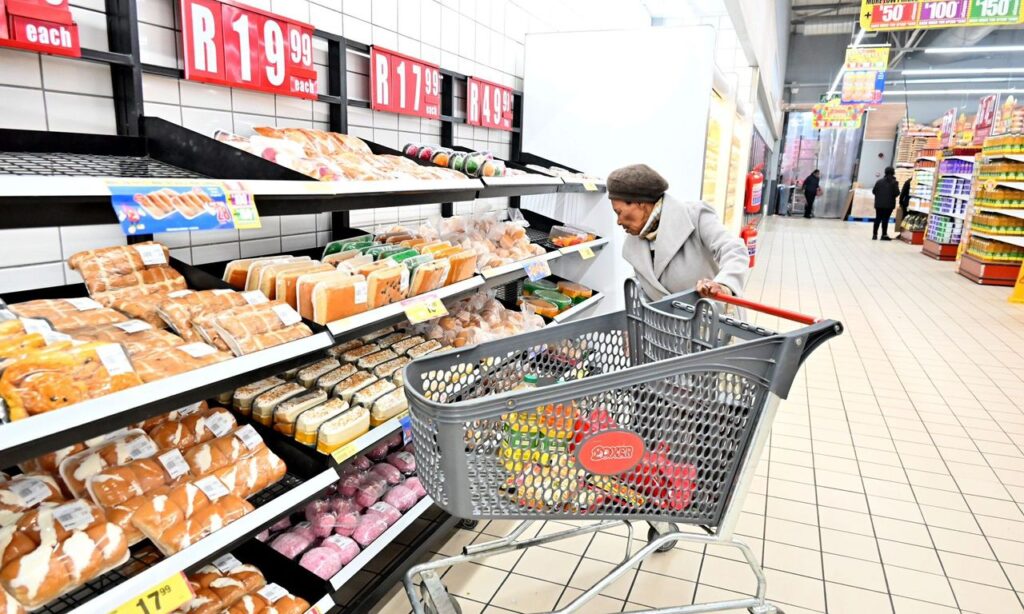
By: ThinkBusiness Africa South Africa’s business sector is grappling with a renewed spike in input costs, as the Producer Price Index (PPI) registered a year-on-year (yoy) increase to 2.9% in October, climbing from 2.3% in September. The rise, driven primarily by cost pressures in the food and energy sectors, signals that factories, farms, and manufacturers are paying more to produce goods, a cost that is likely to be passed on to consumers in the coming months. The data for October 2025, released by Statistics South Africa on Wednesday, highlights specific components that contributed most significantly to the higher PPI figure: The Food, Beverages, and Tobacco Products component was the single largest positive contributor (3.1% contributing 0,9 of a percentage point) to the annual inflation rate for final manufactured goods. Producers in this sector saw their costs rise, which typically leads to higher prices on supermarket shelves. Coke, Petroleum, Chemical, Rubber, and Plastic Products segment contributed (2.5%) 0,5 of a percentage to the annual PPI increase. This points to higher costs for essential raw materials and fuel, impacting almost every manufacturing sector from plastics packaging to agricultural chemicals. While the Intermediate Manufactured Goods category, which includes semi-finished products used by other manufacturers, contributed 0,5 of a percentage point. While the overall PPI figure for October showed an acceleration on a yearly basis, Statistics SA noted that the index decreased slightly by 0.1% month-on-month, suggesting some short-term moderation in price growth compared to September. Economists suggest that the recent appreciation of the Rand and the decline in Brent crude oil prices may have provided some relief on the petroleum side of the equation, helping to prevent the PPI from rising even higher. However, the underlying increases in core manufacturing and utility costs continue to drive overall inflationary pressure in the South African economy.


